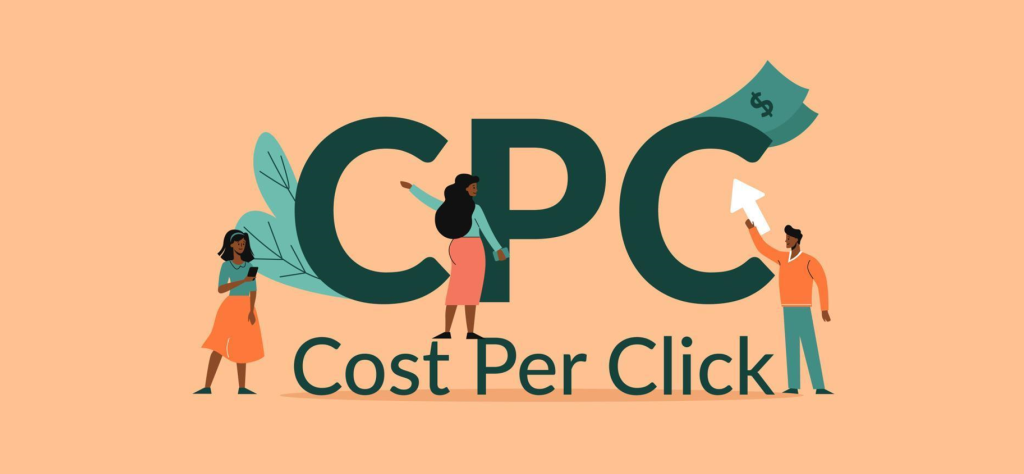Cost-Per-Click (CPC) is a key performance indicator in the ever-changing field of digital marketing that influences how advertisers plan and spend their money. CPC calculates the cost an advertiser incurs when a user clicks on an advertisement. Despite being basic at its foundation, this idea has a big impact on online advertising, impacting everything from budget management to campaign performance. An online advertising metric called cost-per-click (CPC) is used to calculate the expense an advertiser bears when a user clicks on their ad. It is an essential part of pay-per-click (PPC) advertising, in which marketers only have to pay for clicks on their ads, not only display costs.
Why CPC Matters
CPC is a crucial performance metric due to multiple factors:
- Budget Management: CPC gives advertisers more efficient budget management. Advertisers can estimate the number of clicks they can afford within their budget by knowing their CPC and modifying their bids or ad spend accordingly.
- Campaign Effectiveness: Since the advertiser is paying less for each click, a reduced cost per click (CPC) usually signifies that an advertisement is functioning successfully. On the other hand, a high CPC can indicate that the targeting or advertisement strategy has to be improved.
- Return on Investment (ROI) Calculation: CPC aids in the computation of ROI for advertising initiatives. Ads can be made profitable by advertisers by comparing CPC with conversion rate (the proportion of clicks that result in a desired action, such as a sale).
Factors Influencing CPC
A number of variables can affect CPC, such as:
- Bid Amount: Advertisers submit bids for their keywords on auction-based advertising systems such as Google Ads. In general, greater bids result in higher ad placements and possibly higher CPC. But quality scores and competition both play a part in this.
- Quality Score: Relevance and quality of advertising and landing pages are assessed by platforms such as Google advertising using a Quality Score. Because higher quality scores tell the platform that people find the advertisement beneficial, they can result in cheaper cost per click.
- Competition: The degree of rivalry for a certain keyword can have a big effect on CPC. CPCs are often higher for highly competitive keywords that are in high demand among marketers.
- Ad Relevance: Lower CPCs are often associated with ads that are extremely relevant to the search query or audience goal. This is due to the fact that relevant adverts enhance user experience and are rewarded with more favorable placement and reduced expenses.
- Target Audience: The behavior and demographics of the target audience may also have an impact on CPC. Because there is more competition for users in niches with more specialized or valuable audiences, CPCs in certain areas may be higher.
Strategies to Optimize CPC
The following optimization techniques to get the most out of the CPC advertising:
- Keyword Research: Find relevant and affordable keywords by conducting in-depth keyword research. Pay attention to long-tail keywords because they are frequently less competitive and more specific than broad terms.
- Boost Quality Score: Make the landing pages and advertisements more relevant and high-quality. Make sure the content of the ads corresponds with the keywords and that the user experience on the landing page is flawless.
- Refine Targeting: To more successfully contact the intended audience, make use of advanced targeting choices. Limiting the size of the audience can assist cut down on wasted clicks and CPC.
- Monitor and Modify: Based on results, periodically examine the CPC statistics and make necessary adjustments to the bids, ad wording, and targeting. Finding the most effective ad variations can also be aided by A/B testing them.
- Employ Negative Keywords: Use negative keywords to weed out unrelated traffic that can raise the cost per click without producing worthwhile clicks. This makes it easier to allocate the funds to more eligible leads.
In conclusion, one key indicator in internet advertising that influences how marketers divide their expenditures and assess the effectiveness of their campaigns is cost-per-click, or CPC. Recognizing CPC’s significance for ROI computation, campaign efficacy, and budget management is essential to understanding it. Through the consideration of many aspects that impact cost-per-click (CPC) and the use of optimization tactics, advertisers can enhance their advertising endeavors, curtail expenses, and attain superior campaign outcomes. Anyone hoping to get the most out of their online advertising investment must grasp CPC in the dynamic world of digital marketing.

